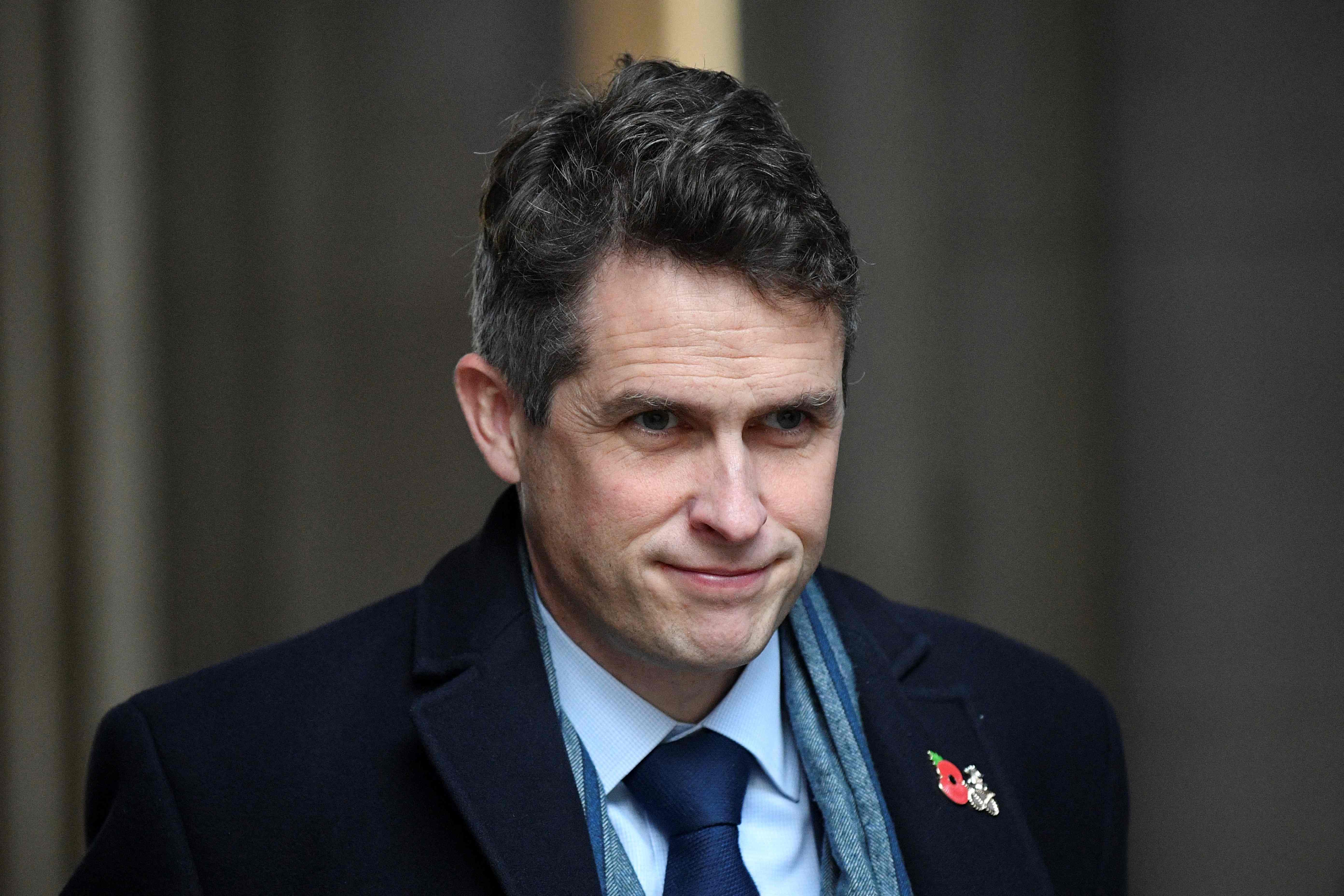Gavin Williamson isn’t a Westminster villain – it’s more complex than that
Anyone who has the good fortune to serve their country in high office knows that sometimes good people have to do bad things, writes Salma Shah


Sniggering at Gavin Williamson’s resignation is likely to have been your first reaction on hearing the news. Then, maybe you joked that it’s time for him to “go away and shut up”, as he once famously told the whole of Russia to do.
When that’s complete, perhaps you can go on to sharing more Frank Spencer memes on WhatsApp... and then what? Realise that Matt Hancock is an official campmate in the jungle and switch your ire to him instead?
The problems we’re facing will still be there. Williamson going to the back benches doesn’t fill the fiscal black hole, or deal with the small boats crisis. So why do we love to hate our Westminster villains so much? Why do we live to judge and enjoy their falls from grace? Why is it so much more satisfying than looking at the complexities of getting waiting lists in the NHS down? Or working out whether ID cards might well be an innovative solution to delivering government services?
Bullying and aggression should not be tolerated. This is not about excusing poor behaviour. But our obsession with individuals above issues is driving our inability to deal with complex problems. We like to split the world into heroes and villains; that’s probably why our politics uses the language of goodies and baddies, even though any grown-up with responsibilities will tell you it’s not quite that simple.
It’s perhaps why political language is forced to give us binary certainties when what we’re really facing are a series of probabilities. In recent times we’ve been exposed to the grey areas of government, precipitating the need for impartial information and expertise. Facts have been desperately sought in a world faced with challenges that political rhetoric cannot ease away.
The global pandemic threw us into the world of epidemiology and disease, and gave us a sense of the pressures on our systems and the realities of the unpalatable choices that are made by administrators about what gets attention and resources and what doesn’t.
Our economic crisis is forcing us all to take a fresh look at what is affordable and what is realistic, based on economic reality, not the imagined future a politician can give you. We are living in an age of worry, and worry tends to force us to search for solutions.
But the opposite is also true. The weight of the world’s problems forces some of us to turn away from fact and knowledge into ever more crass and false promises, our confirmation bias leading us to believe theories about the origins of the world’s ills. These simpler narratives are seductive because they suggest that bad things happen because of bad people; that improving your life is as simple as vanquishing a certain type of person from power.
This kind of narrative loves goodies and baddies, and it hooks you in with the promise of good triumphing over evil and things being right with the world. It is a lie.
To keep up to speed with all the latest opinions and comment, sign up to our free weekly Voices Dispatches newsletter by clicking here
Anyone who has the good fortune to serve their country in high office knows that sometimes good people have to do bad things. Choices and decisions aren’t always obvious – you have to get comfortable with being right only up to a point – and yes, you may have to compromise on your principles in order to achieve something worthwhile. Power is not absolute: it is a constant compromise, and painfully complex.
But technocratic arguments don’t win elections, and admitting that sometimes you need to practise the dark arts to get things done won’t win you any friends. We do politics in a black-and-white way, where uncertainty is deadly and nuance is criminal. We are conditioned to think in absolute terms, so despite the electorate not being stupid, today’s crop of MPs might be testament to the fact that we get the politicians we deserve.
If we want a different kind of politics, we have to encourage it by asking difficult questions about the issues.






Join our commenting forum
Join thought-provoking conversations, follow other Independent readers and see their replies
Comments